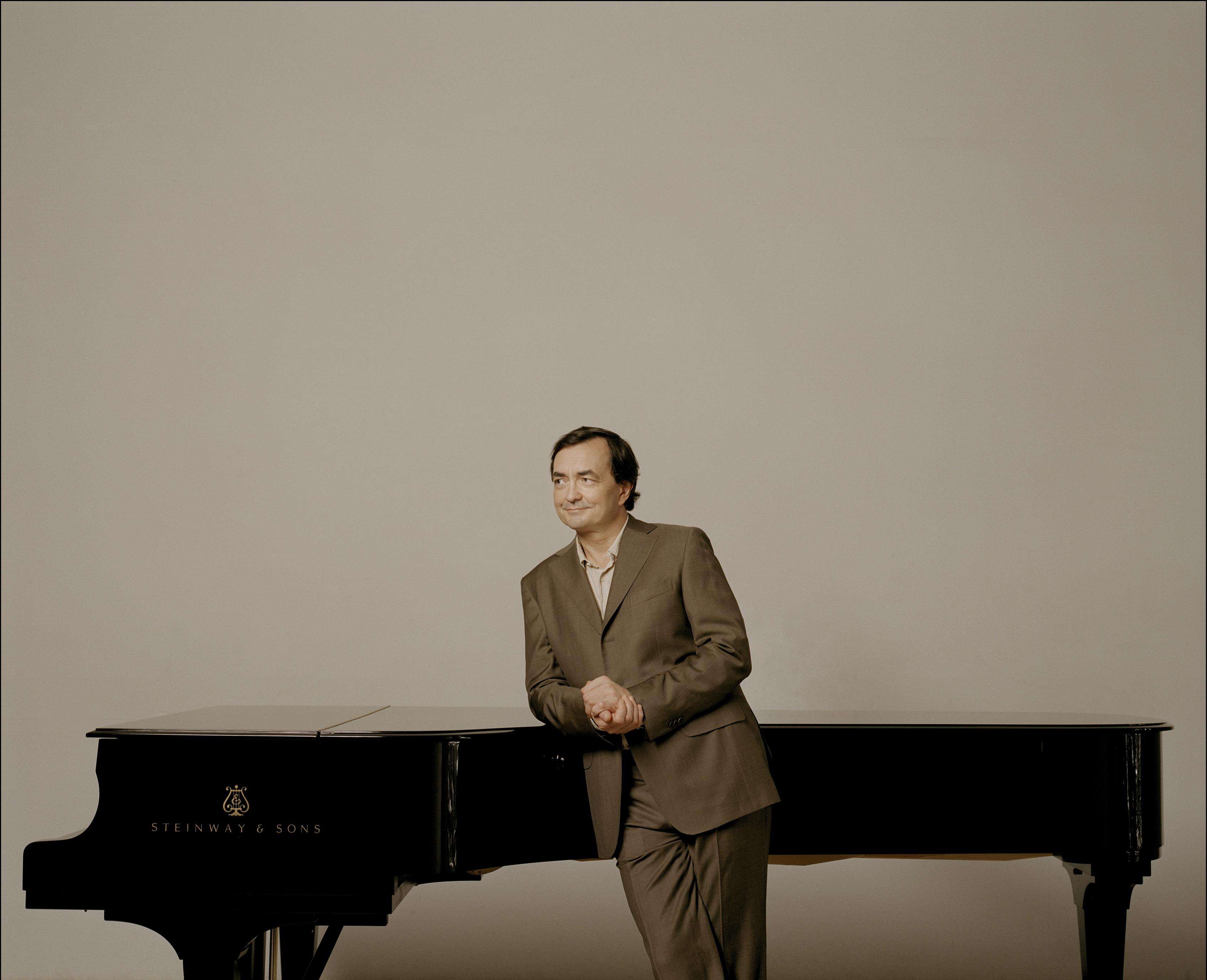|
Back
An intense experience Toronto
Koerner Hall
05/01/2011 -
Franz Liszt: La lugubre gondola, S.200, No. 1 – Nuages Gris, S.199 – Unstern! Sinistre, disastro, S.208 – Piano Sonata in B Minor, S.178
Richard Wagner: Eine Sonate für das Album von Frau M.W., WWV 85
Alexander Scriabin: Piano Sonata No. 9 in F. Major, Op. 68
Alban Berg: Piano Sonata in B Minor, Op. 1
Pierre-Laurent Aimard (Piano) 
P.-L. Aimard (© Felix Broede)
I was attracted to this recital by the intriguing juxtaposition of its repertoire. What we got was an intensely well-thought-out exploration of the fundamental tonal transition that occurred between the 1850s, when Wagner started work on Tristan und Isolde, and 1913, when the Second Viennese School had presented itself to the world.
To begin with, the director of programming for the hall, Mervon Mehta, made the welcome request that the six numbers in the first half be played without interrupting applause. The first piece was Liszt’s La lugubre gondola No. 1, composed in 1882 when he was in Venice staying with Richard and Cosima Wagner. Inspired by funeral corteges on the Grand Canal, the piece is intensely elegiac. (Richard Wagner died a few weeks later – and his funeral cortege made its way along the canal as well.)
The ensuing piece was Wagner’s Eine Sonate für das Album von Frau M. W., written almost 30 years before the Liszt work. Frau M.W. was, of course, Mathilde Wesendonck, wife of Wagner’s patron in Lucerne, who is credited as the inspiration for Tristan und Isolde. This single movement sonata has more than just hints of the revolutionary harmonies the opera was to unleash on the world (as do some of the Wesendonck Lieder, composed to poems by Frau M. W.) Intended for an amateur pianist, it is a relatively simple piece (hence rarely performed in recitals), although the central section still has some pyrotechnical Lisztian cascades.
Next: Liszt’s Nuages Gris (“Gray Clouds”), existential and gnomic. Liszt was experiencing some of the ills and aches of old age and it shows in this piece.
Then suddenly a leap of some 30 years to Alban Berg’s Sonata in B minor, Opus 1, written when the composer was 23. It is a single movement work originally intended as the first part of the three movement work, but Arnold Schoenberg, Berg’s teacher, persuaded his pupil that it sufficed on its own. In the context of this program it came across as youthfully perky in spite of its advanced “decadent” harmonies.
This was followed by a truly dark piece by Liszt, Unstern! Sinistre, disastro (“Black star, sinister, disaster"), with very probing and, in the end, unresolved harmonies.
The final piece was Scriabin’s “Black Mass” Sonata, composed in 1913. The piece contains an amazing number of notes (“a veritable molecular vertigo” is an apt quote from Keith Horner’s excellent program notes) and almost seems to take things just a bit too far. Given its context in this program, one certainly was made aware of Wagner’s influence.
The most striking aspect of Aimard’s performance of these six pieces was his intense concentration on each work which demanded (and received) equally intense concentration from the audience.
Overheard at intermission: “Everyone in this audience is a pianist!” Not quite true, but close.
The sole piece in the second half was Liszt’s mighty Piano Sonata in B Minor. This work is almost in danger of becoming too familiar, but Aimard’s interpretation was unlike any I have ever heard basically because of the crystalline clarity he brought to it. Yet, it was still very rich, grand and romantic, sweeping us along on its turbulent journey.
There were no encores. (None were needed.)
The audience for this concert was surprisingly small. This was at least partly due to the sheer number of musical events occurring at the same time. Another possible factor: Hélène Grimaud performed both the Liszt and Berg sonatas in the same series earlier in the season – and I see that another performance of the Liszt is scheduled at Koerner Hall (Kirill Gerstein playing, under the auspices of Toronto Summer Music) in July.
Michael Johnson
|